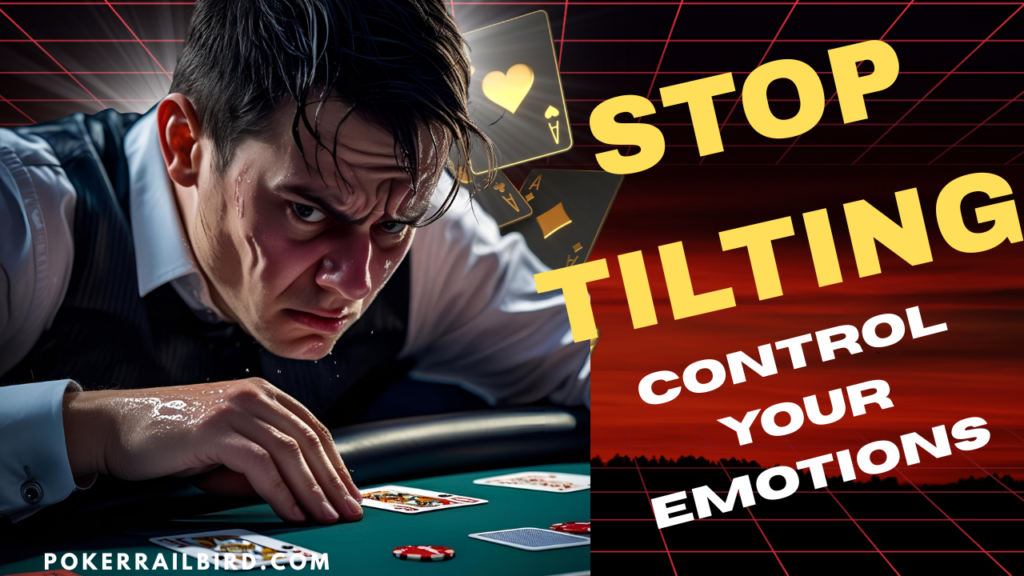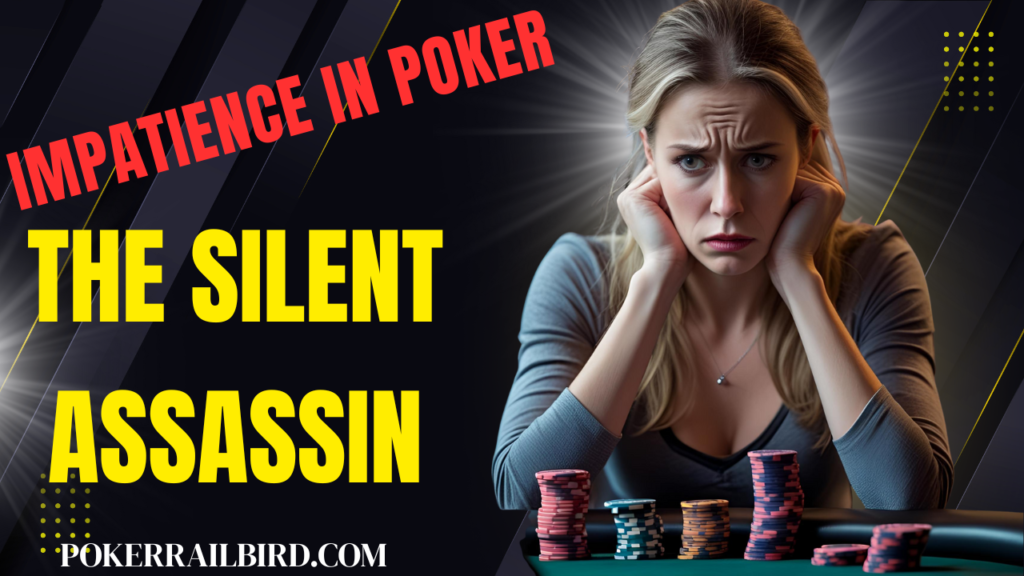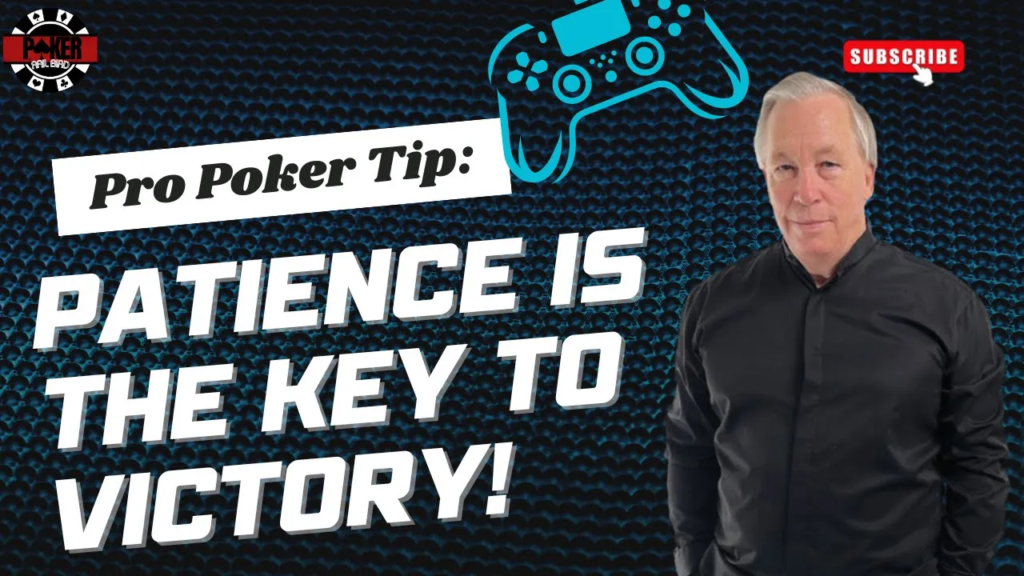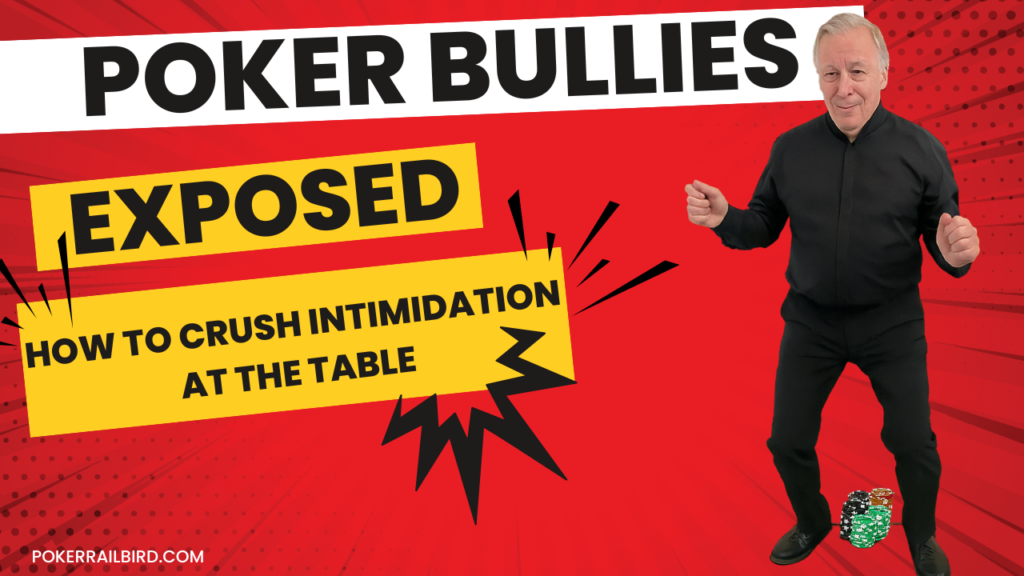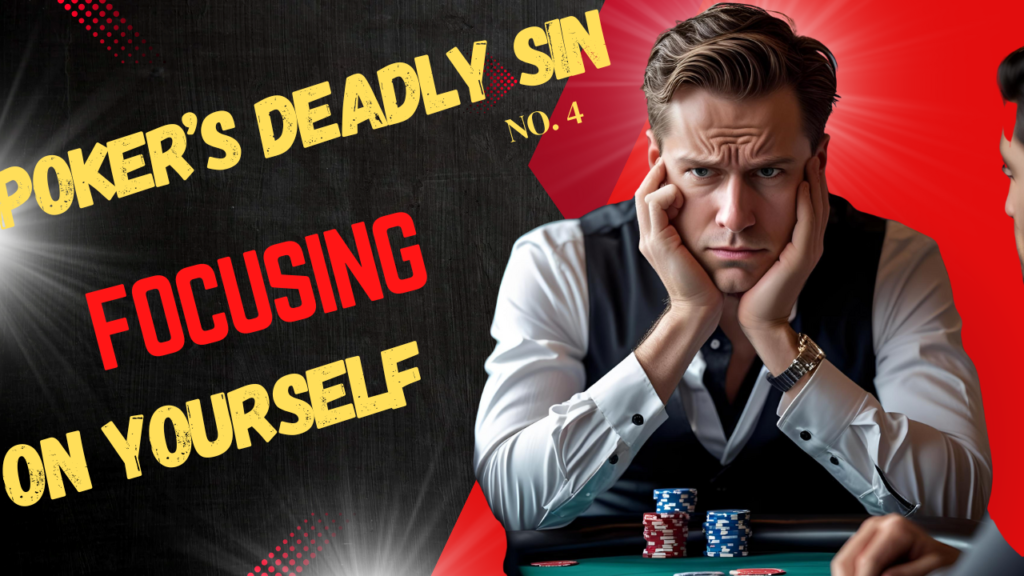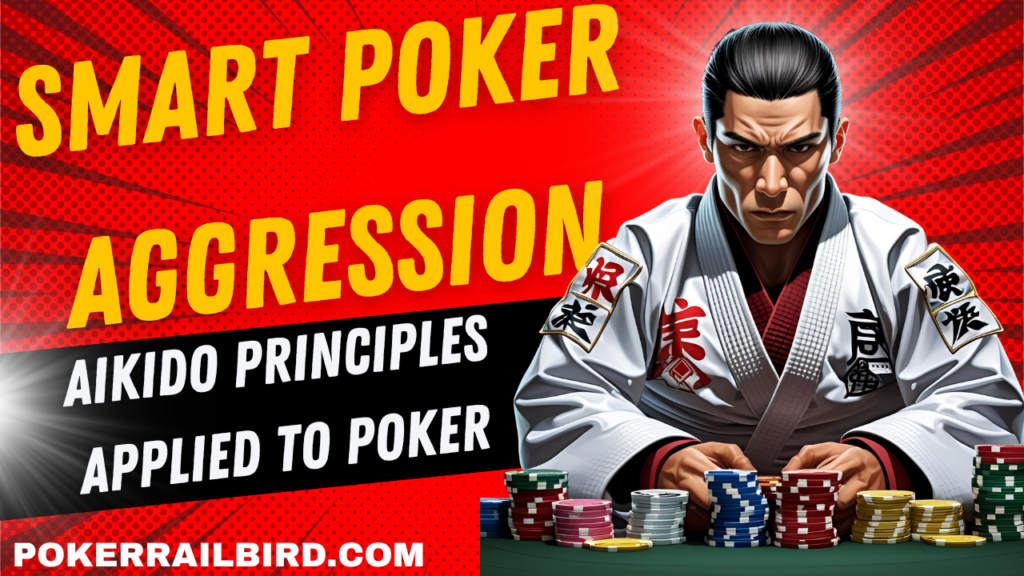EGO IN POKER
HOW POKER EGO DESTROYS STRATEGY, BANKROLL & COMPOSURE
Poker ego is one of the most dangerous liabilities a player can carry to the table. It’s more corrosive than variance, more disruptive than a bad beat, and more persistent than a losing streak. While ego may mask itself as confidence or bravado, beneath the surface it often signals insecurity, emotional fragility, and an unhealthy attachment to identity.
Ego doesn’t just influence decisions — it hijacks them. Instead of asking the strategic question, “What’s the most profitable play here?” the ego-driven player asks, “How do I prove I’m better than these people?” That single shift in mindset can unravel years of discipline and study in a matter of minutes.


From high-stakes legends like Phil Hellmuth to local game regulars clinging to pride after a bluff gets picked off, the poker world is full of cautionary tales. The wreckage left behind includes blown bankrolls, fractured table reputations, and chronic tilt — often triggered not by bad cards, but by bruised egos.
In this article, we’ll dissect what poker ego really is, where it comes from, and why it’s so destructive — not just in poker, but in life. We’ll explore how emotional intelligence (or the lack of it) determines whether ego becomes your worst enemy or your greatest teacher. Along the way, we’ll include real-world examples, psychological insights, and evidence-based strategies for mastering ego before it masters you.
THE PSYCHOLOGY OF EGO IN POKER
At its core, ego in poker is not just arrogance — it’s identity attachment. It’s the subtle belief that your worth is measured by your image at the table: your ability to dominate, outsmart, or outplay others. But ego isn’t born from strength — it’s born from insecurity.
WHERE DOES POKER EGO COME FROM?
According to Dr. Kristin Neff, a leading researcher in self-compassion and identity, inflated egos are often the result of low self-esteem masked as confidence.¹ When players tie their sense of value to being “the best” at the table, they become emotionally fragile in the face of losses, criticism, or being outplayed.
Psychologist and author Ryan Holiday describes ego as “the enemy of what you want, of mastering a craft, of real creative insight.”² In poker, this shows up as:
- Resisting feedback or coaching
- Playing to impress rather than to win
- Refusing to fold because it feels like “losing face”
This kind of ego isn’t about confidence — it’s about overcompensation.
EGO & EMOTIONAL INTELLIGENCE
Emotional Intelligence (EQ), a term coined by Daniel Goleman, includes self-awareness, emotional regulation, empathy, and adaptability.³ Ego suppresses all of these.
A player with high EQ:
- Understands their emotions in the moment
- Knows when they’re about to tilt
- Can detach their sense of self from the outcome of a single hand
By contrast, a player ruled by ego:
- Feels personally attacked when bluffed
- Chases losses to restore their image
- Misreads others because they’re consumed by their own emotions
Key insight: Ego creates a kind of emotional tunnel vision. It blinds players to what’s happening at the table because they’re too focused on how they’re being perceived.
.
EGO TILT VS BAD BEAT TILT
Many players think the worst tilt comes from bad beats. But that’s usually short-lived. Once the statistical injustice wears off, many players move on.
Ego tilt, however, is deeper and more persistent. It happens when a player’s identity is threatened — when they’re outplayed, humiliated, or proven wrong.
“The worst tilt I’ve seen isn’t from a two-outer,” says mental game coach Jared Tendler. “It’s from someone being embarrassed. That sticks with them for hours — sometimes days.”⁴
In other words, ego tilt isn’t about the hand. It’s about the story we tell ourselves: “I’m supposed to be better than this. I can’t let them think they’re smarter than me.”

EGO TILT - FASTER, HOTTER AND MORE DESTRUCTIVE
WHAT IS EGO TILT?
Most players associate tilt with a bad beat — the kind of statistically improbable loss that rattles even seasoned pros. But in truth, the most dangerous form of tilt isn’t caused by the cards. It’s caused by the ego.
When a player with a fragile or inflated ego is outplayed, mocked, or made to look foolish, the emotional fallout runs deeper than simple frustration. It’s not about losing a pot — it’s about losing face. And that’s where ego tilt begins.
.
Ego tilt is a psychological and emotional response to perceived humiliation, disrespect, or identity threat at the poker table. Unlike standard tilt — which is reactive, brief, and usually triggered by variance — ego tilt is often personal, pride-driven, and long-lasting.
“The root of ego tilt is identity,” says Jared Tendler, mental game coach and author of The Mental Game of Poker. “If your self-worth is tied to how others perceive you at the table, you’re constantly at risk of collapse.”¹
IT DOESN'T HAVE TO BE A REAL INSULT
One of the most important — and hilarious — truths about ego tilt is that it doesn’t require a real insult. It just needs to be perceived as one by the ego-driven player.
Sometimes the trigger is obvious — like a sarcastic jab or a mocking laugh. But more often, ego tilt is set off by something subtle, or even neutral, such as:
- Getting called down light
- Being bluffed and shown
- Having a player raise your c-bet on a dry board
- A harmless comment like, “Wow, you haven’t played a hand in an hour…”

To most players, these are just part of the game — even funny, or flattering. But to someone with a fragile or inflated ego, moments like these feel like public humiliation. The insult may exist only in their mind, yet it has the same emotional impact as a personal attack.
“I’ve seen players go on tilt just from being called a ‘nit’ or getting laughed at after folding,” says one veteran poker coach. “No one else thought it was mean — but to that player, it was war.”
What’s even funnier? Most of the time, no one else at the table even realizes an insult occurred. The ego-inflated player simmers in silence, or explodes in frustration, while everyone else is just moving on to the next hand.
Players with high emotional intelligence often wear those same comments as a badge of honor:
- “Tight” means you’re disciplined.
- “Nit” means you don’t spew chips.
- “You only play the nuts” means they can’t figure you out.
That’s the difference between ego reactivity and emotional control — one turns jokes into triggers; the other turns insults into insight.
HOW EGO TILT MANIFEST
- Chasing losses to prove a point
- Calling down with weak hands to show you won’t be pushed around
- Over-bluffing in a rage, especially after being shown a better hand
- Refusing to fold because doing so feels like “losing”
- Playing faster and more aggressively in emotionally charged spots
Ego tilt often results in a complete break from logical decision-making. What matters isn’t the math — it’s the optics. The ego wants revenge, validation, or dominance, and will gladly torch your stack to get it.
EGO TILT LAST LONGER

Psychologists have found that shame and humiliation activate deeper regions of the brain tied to long-term memory and emotional pain. While anger from a bad beat fades quickly, shame-based tilt — the kind caused by ego wounds — lingers.
In a 2021 study on emotional reactivity in competitive environments, researchers found that identity-based threats (like being mocked or proven wrong) produced longer-lasting cortisol spikes than random loss scenarios. In poker, that means ego tilt not only hits harder — it sticks longer.
REAL WORLD EXAMPLE
At the 2008 World Series of Poker, Phil Hellmuth famously went on a tirade after an opponent called him down with a marginal hand and won. The outburst wasn’t about the pot — it was about being shown up on poker’s biggest stage. His emotional unraveling didn’t just cost him that hand. It threw him off for hours.
And it’s not just Hellmuth. Ego tilt affects everyday players who can’t walk away after being check-raised on a bluff, shown a slow roll, or needled by an opponent who “got them.”
THE COST OF EGO AT THE TABLE
The real damage caused by ego isn’t emotional — it’s strategic and financial. An unchecked poker ego doesn’t just make poor decisions — it makes predictably bad decisions, over and over again.
When your goal becomes protecting your image instead of making profitable plays, you become a liability to your own stack.
Here are the most common ways ego sabotages players at the table:
CALLING TO SAVE FACE
BLUFFING FOR REVENGE
REFUSING TO FOLD BECAUSE "THEY CAN'T HAVE IT"
IGNORING FEEDBACK OR REFUSING TO ADJUST
When someone calls you down light, or bluffs you off a pot, ego says: “You don’t let that happen. You show them you don’t fold.”
So you call with marginal hands. You call without a plan. You call to prove you’re not afraid.
Just like that, you’re no longer making decisions based on equity — you’re making them based on ego.
After being shown a bluff, ego often demands retaliation. You want to “get them back,” so you force a reckless bluff — often in a spot where your opponent isn’t folding.
Bluffing from ego, rather than timing and range logic, turns a tactical tool into a torch for burning your bankroll.
The classic: “He’s been stealing all night — I know he doesn’t have it.”
The result? You level yourself into a hero call with second pair on a scary board. The ego convinces you that folding is weak — even when the math says it’s right.
Ego resists input. You start telling yourself: “I know what I’m doing.” You tune out player types, board texture, bet sizing tells — because your mind is focused on pride, not patterns.
This makes your game rigid and readable — two words no poker player wants attached to them.
EGO AS VALUE RIGIDITY

In Zen and the Art of Motorcycle Maintenance, Robert Pirsig described value rigidity as the inability to re-evaluate one’s values when circumstances change. He writes:
“The inability to revalue one’s beliefs in the face of changing conditions — that’s value rigidity. And that’s the root of many breakdowns.” — R.M. Pirsig
That’s exactly what ego does in poker. A player locked into ego is rigid in all the wrong ways:
- They can’t fold, even when they should, because folding feels like defeat.
- They won’t adjust, even when the table dynamic demands it.
- They’re not learning, because their inner narrative insists “I already know.”
Poker is a dynamic game that demands flexibility — tactical, emotional, and psychological. But ego locks players into outdated stories:
- “I’m the best player at this table.”
- “They wouldn’t dare try that on me.”
- “I never let anyone push me around.”
When reality contradicts those self-stories, ego doesn’t evolve — it doubles down. That’s when the breakdown occurs — not just in one hand, but in the player’s broader decision-making architecture.
WHAT YOU LOSE WHEN EGO TAKES OVER
- Bankroll discipline (you chase losses or take shots to “win it back”)
- Table image control (you overreact and become easy to read)
- Edge against weaker players (you go after the strong ones to prove yourself)
- Emotional stability (you live in reaction, not strategy)
In the end, ego doesn’t just cost you money — it costs you control.
💬 “The poker room is daycare for adults.” — Beth the Dealer
(And ego is the loudest kid in the room.)

THE TABLE ALWAYS WINS WHEN YOU PLAY WITH EGO
This is the cold truth:
When you play from ego, every other player at the table wins.
And when ego tilt kicks in? They win again — but bigger.
- Tight players win because you’ll pay them off trying to prove something.
- Aggressive players win because they know how to bait ego into bad bluffs.
- Patient players win because they wait for your emotions to do the damage for them.
An ego-driven player becomes the center of attention, but not in the way they think. Opponents quietly study their reactions, trigger points, and emotional thresholds — and then begin to exploit those tendencies without mercy.
Every time you overcall, overbluff, or refuse to fold because of pride, someone at the table is silently thanking you. You’re not just donating chips — you’re donating predictability.
And in poker, that’s lethal.
HOW TO RECOGNIZE EGO IN YOURSELF
Most players can spot ego in someone else. The loudmouth. The show-off. The guy who can’t stop talking about a hand he won three hours ago. But the harder question is:
Can you spot ego in yourself — while it’s happening?
That’s the real skill. Because ego doesn’t always show up as arrogance. Sometimes, it wears a different mask — defensiveness, stubbornness, impatience, or silence. Recognizing these early warning signs can save your stack — and your sanity.
🪞 Signs You’re Playing from Ego (Not Logic)
Ask yourself these questions the next time you’re at the table:
- Do I feel insulted when someone calls me light or bluffs me?
- Am I more concerned with how I look than what the right play is?
- Do I chase bad plays to “get even” or “prove a point”?
- Do I ever think, “I can’t fold to this guy again”?
- Do I feel emotional after folding, losing, or being shown a bluff?
- Do I talk more after a loss — or go completely silent out of pride?
- Am I avoiding folding because I think it makes me look weak?
If you answered “yes” to any of these, there’s likely an ego flare-up occurring. And that’s not shameful — it’s human. The key is catching it in the moment, before it takes the wheel.
EGO & THE INNER NARRATIVE

Pride in poker is often tied to identity:
- “I’m the smartest guy at the table.”
- “I don’t get pushed around.”
- “I don’t make mistakes.”
But when the cards don’t cooperate, or an opponent catches you off guard, those stories start to crack — and ego rushes in to defend them.
The shift is subtle but dangerous:
Instead of playing poker, you start playing a self-preservation game.
THE POWER OF REAL SELF-AWARENESS
The best players — and the most emotionally intelligent ones — don’t ignore their ego. They notice it.
They recognize the tension building in their chest after a bluff fails. Or they feel the heat in their face when someone needles them. Sometimes they hear the story forming in their mind — “I have to win this back.”
And then, instead of reacting, they pause.
They breathe.
Then they fold.
They wait.
They reset.
That’s what separates the ego-driven player from the high-performance one.
Ego reacts. Awareness responds.
STRATEGIES TO KEEP EGO IN CHECK
If ego is the enemy of strategic poker, then awareness, discipline, and humility are the weapons that keep it in check. You can’t eliminate ego — it’s hardwired into human nature. But you can train yourself to recognize it, contain it, and use it as a signal rather than a saboteur.
Here are actionable strategies to keep your ego from hijacking your game:
CREATE EMOTIONAL SPACE BETWEEN YOU AND THE HAND
DETACH IDENTIFY FROM OUTCOMES
REPLACE EGO WITH CURIOSITY
Before making a big decision — especially after losing a pot, getting bluffed, or feeling challenged — give yourself a mental pause.
- Take a breath.
- Look away from the board.
- Ask yourself: “Am I reacting emotionally?”
That three-second pause can be the difference between a world-class fold and an ego-fueled punt.
You are not your stack.
You are not your win-rate and you are not your last decision!
The best players detach their sense of self from their results. Instead of thinking, “I can’t fold, or they’ll think I’m weak,” they ask, “What’s the most +EV move right now?”
Poker doesn’t reward pride. It rewards precision.
When something stings — like being bluffed or called down light — get curious instead of combative.
- “Why did he call me there?”
- “What did I miss in the way I played that hand?”
- “What’s his perception of me that made that play profitable?”
Ego says, “I can’t believe he did that.”
Curiosity says, “Interesting — what can I learn from that?”
USE SELF-TALK AND RESET RITUALS
SURROUND YOURSELF WITH HONEST PLAYERS
MAKE EMOTIONAL CONTROL PART OF YOUR STRATEGY
Create a few internal phrases or quick habits to ground yourself mid-session:
- Self-talk: “You don’t have to win this hand. You just have to play it well.”
- Rituals: Stack your chips with intention. Take a sip of water. Tap the felt twice.
These tiny reset cues give your logical brain a chance to re-engage when emotions try to take over.
One of the fastest ways to destroy ego is to get regular, honest feedback — especially from players better than you.
If you only talk strategy with people who praise your every move, your ego grows unchecked. But if you invite critique — and use it — you develop the kind of emotional resilience that ego can’t penetrate.
“Iron sharpens iron — ego dulls it.”
Treat tilt management and ego regulation like a skill, not a side issue.
Just as you study ranges, odds, and bet sizing, study your own tendencies, triggers, and emotional cues. Build a strategy that includes mental defense — not just chip movement.
The players who win long-term aren’t just the best at poker.
They’re the best at staying present.
EGO IS THE ENEMY - BUT ALSO THE TEACHER
Poker punishes ego. It doesn’t matter how experienced you are, how much you’ve studied, or how good you think you are — if your decisions are driven by pride instead of logic, the game will find your weakness and expose it. Every. Single. Time.
But here’s the deeper truth: Ego isn’t just the enemy — it’s also the teacher.
Ego reveals where you’re still attached.
It shows you what you can’t let go of.
It highlights where your identity is wrapped around outcomes, appearances, or control.
If you’re willing to look, your ego will point directly to the parts of your game — and your mindset — that still need work.

FINAL THOUGHTS
Letting go of ego doesn’t mean becoming passive. It means becoming clear.
It means shifting from “I have to prove something” to “I have to play this hand as well as possible.”
That’s where real strength lies — not in domination, but in discipline.
Not in forcing outcomes, but in making optimal decisions regardless of outcome.
Poker is a mirror. Ego shows you the cracks in that mirror — but it also offers the chance to polish it
In the end, the most profitable play isn’t always the flashiest.
It’s the quiet fold, the smart laydown, the reset after a bad beat —
the moment you could have tilted, but didn’t.
That’s when you know: you’re playing the player that matters most — yourself.

